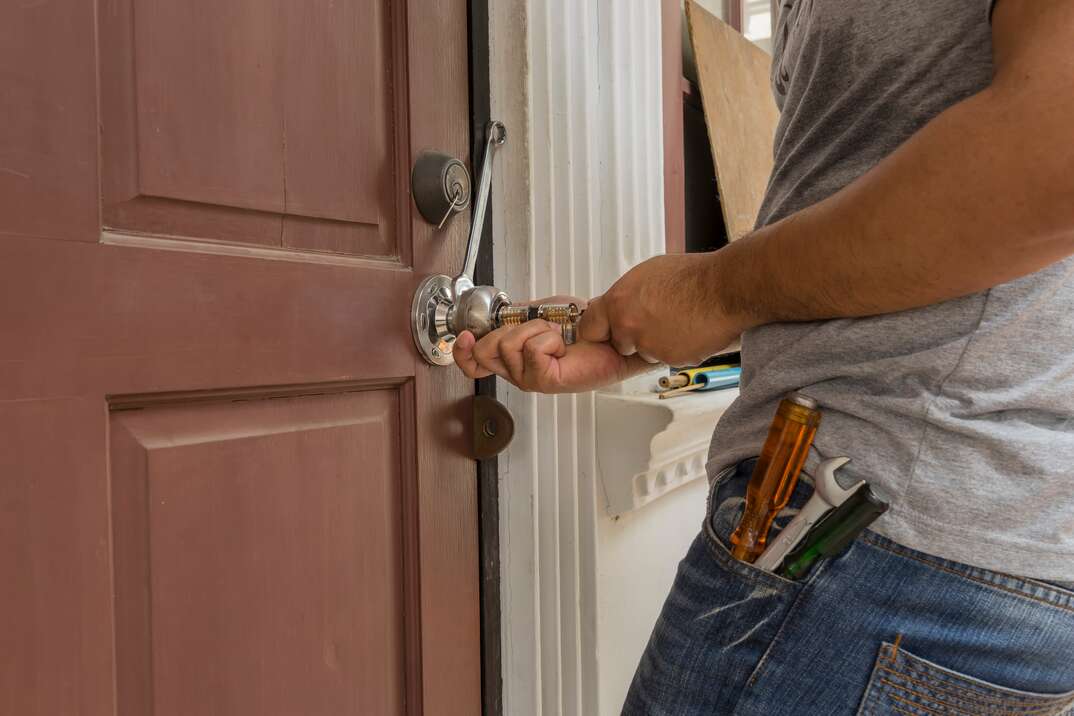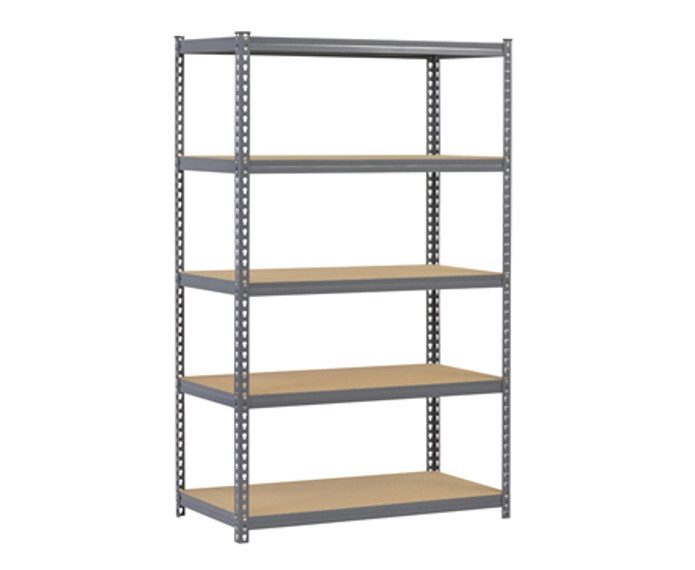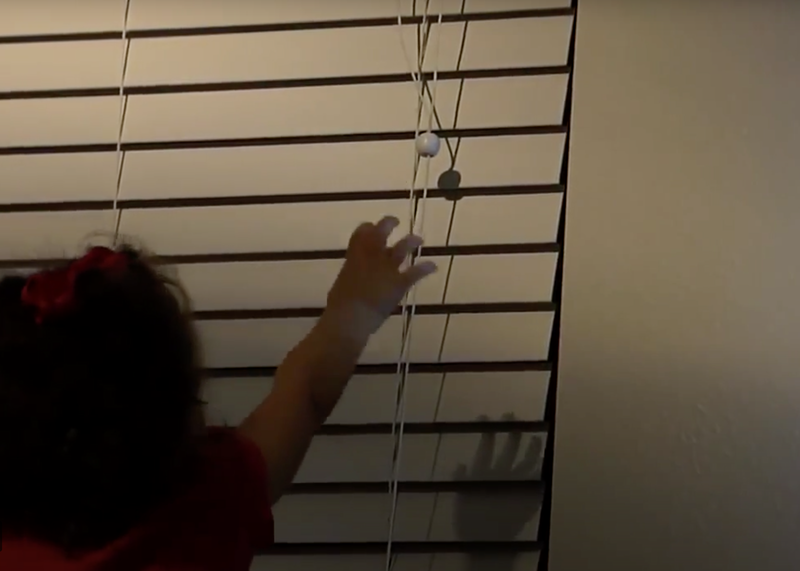First-Time Homebuyers: Here's What to Replace First After Moving Into a New House

Buying your first home is an exciting time. But it can also be pretty nerve-wracking. Sure, you’ve finally got a place to call your own. You can see your whole life laid out in front of you. But, there’s also a sense of the unknown pervading your thoughts. There are aspects to owning a home that you likely haven’t considered at this point. And while most of it is learned “on the job,” it can’t hurt to get started on the right track.
This May Also Interest You: Should You Remodel or Move? Here’s How to Decide
Are you a first-time homebuyer? Make sure you run through this checklist before you start unpacking.
First Things First: Give the House a Thorough Cleaning
Regardless of how clean everything might appear in your new home, the first thing you should do when moving in is to give it a thorough cleaning. Cleaning before you move your belongings into a home is a great idea for many reasons.
For one, you can make sure that you’re moving into an allergen-free environment. Allergens, like dust and animal hair, can lurk nearly anywhere — including in and around major appliances — so it’s best that you cover your bases. Pay close attention to areas like carpets, floors and baseboards. High-traffic areas like these tend to absorb dust and other microscopic allergens, harboring unwanted smells or stains.
Plus, an empty home is just easier to clean than one filled with furniture and personal belongings. In fact, this might be the only time you’ll have such easy, unobstructed access to all the nooks and crannies of your new home, making it the perfect time to give it a good scrub down.
What Should You Replace When Moving Into a New House?
Locks
One of the first things you should do after buying a new house is to have the locks rekeyed or replaced. There’s no guarantee that the previous homeowner turned in all of their keys to you during closing. For security reasons, you may decide you want to change the locks to protect your family and your valuable personal items.
Keep in mind that it may not be entirely necessary to replace all the locks on your home. If the locks are old or have a lot of wear and tear, you might want to replace them. Otherwise, it might be perfectly fine to simply rekey them. When you rekey a door, you simply alter the lock mechanism so that the old keys won’t be able to open the door. Instead, you’ll use a new key. While this might sound more complicated, it’s typically cheaper and quicker than replacing all of the locks on your home.
While you’re rekeying or replacing the locks on your new house, you also want to make sure you reset any passwords or codes saved on the security system, if you have one.
Air Filters and Ductwork
As we’ve already covered, just because your new house appears clean, there’s no telling what is lingering under the surface. Two of the unexpectedly dirtier areas that might need addressing are your air filters and ductwork. Keeping a clean HVAC system — including air filters — is one of the most important aspects of home maintenance. Clean ducts and air filters are crucial to keeping the air in your home fresh and your heating and air conditioning running as efficiently as possible. Even if your air filters are clean, you still might opt to change them out with filters that are more efficient and better at filtering out allergens and pollutants.
While you’re replacing your air filters, you may also want to have your air ducts cleaned. Just like a dirty filter, dirty air ducts can lead to poor indoor air quality and low energy efficiency. Keep in mind that you’ll probably want to hire a professional to conduct the cleaning. They’ll vacuum out any dust or debris that has been trapped in your duct system. They’ll give all of the other HVAC components a thorough cleaning, too, ensuring that your air is clean as a whistle.
And while it’s not exactly part of your HVAC system, you may want to clean your dryer vent as well. Lint, dirt and other debris can get trapped inside the vent over time. If a vent hasn’t been cleaned in a while, it can be a significant fire hazard, so make sure you’ve taken the time to clean it out.
Smoke Detectors
The National Fire Protection Association recommends that every smoke alarm be replaced after 10 years and smoke alarm batteries every six months. If you’ve just moved in, you’ll want to take the time to check the age of your smoke alarms. If there’s not a year visible anywhere on the alarm, you may want to go ahead and replace them. Even if the alarms appear to be under the 10-year mark, consider replacing all of the batteries upon moving in. When it comes to protecting your home, you’ll want to make sure you do all you can to stay safe.
More Related Articles:
- Can You Move an Entire House? Yes. Here’s How Much It Costs
- Moving Money: How Much Does It Cost to Move?
- How to Move: A Guide to Preparing for Moving Day
- Moving? Renovating? Here’s Everything You Need to Know About Short-Term Storage Costs
- How Much Does Homeowners Insurance Cost?
What Home Improvement Projects Should You Tackle Before Moving In?
Flooring
One of the most difficult home improvement projects to undertake while living in a home is anything involving flooring. Refinishing hardwood, replacing carpet, tiling or installing laminate are all very intrusive projects, even if you’re not doing the work yourself. These projects require you to remove all the furniture. It may be several days, or sometimes even weeks, before life can return to normal. Because of this, you might want to consider taking care of any flooring updates prior to moving into the home.
Cosmetic Upgrades
Like flooring projects, any type of painting, drywall repair or popcorn ceiling removal is infinitely easier when there is no furniture or personal belongings to contend with. Painting an empty home is easier and less time-consuming than having to constantly work around furniture and other belongings.
Also, if the home is new to you but has been around for a while, it may have some less desirable aesthetic aspects added to walls and ceilings. Case in point: popcorn ceilings. At one time, homeowners loved this added texture to ceilings. Not so much anymore. If popcorn ceiling removal is on your list of cosmetic changes, take care of it before you move in. It’s a pretty easy project, but it can be very messy.
What Projects Can Wait?
Larger Renovations
While it might be tempting to take care of all major home renovations before moving into your new home, tackling everything on your to-do list might not be such a smart idea after all. After living in a space for a certain amount of time, you may find out that you use the space differently than you thought you might. Sure, knocking out those walls before you move in might seem smart in theory, but maybe a different renovation might suit your needs more effectively.
Landscaping Projects
Let’s face it: Moving is tough. There’s no need to be a superhero. You’ll have plenty to do, knocking out those above-mentioned tasks and actually moving into your new house than worrying about anything else. While you might think that planting flowers or removing shrubs are pressing tasks, they can wait until after you’ve had a moment to settle down and get the moving part out of the way.


